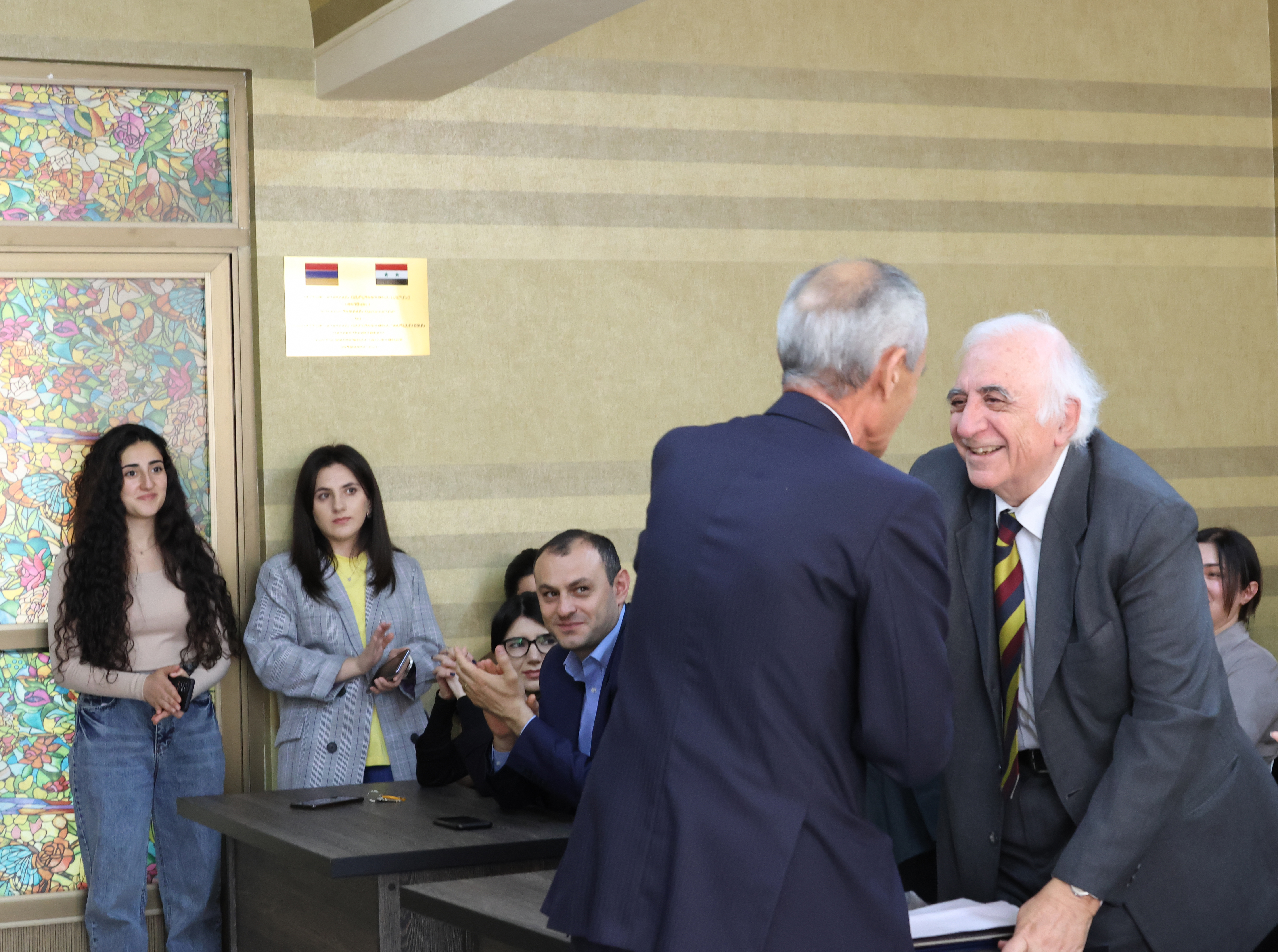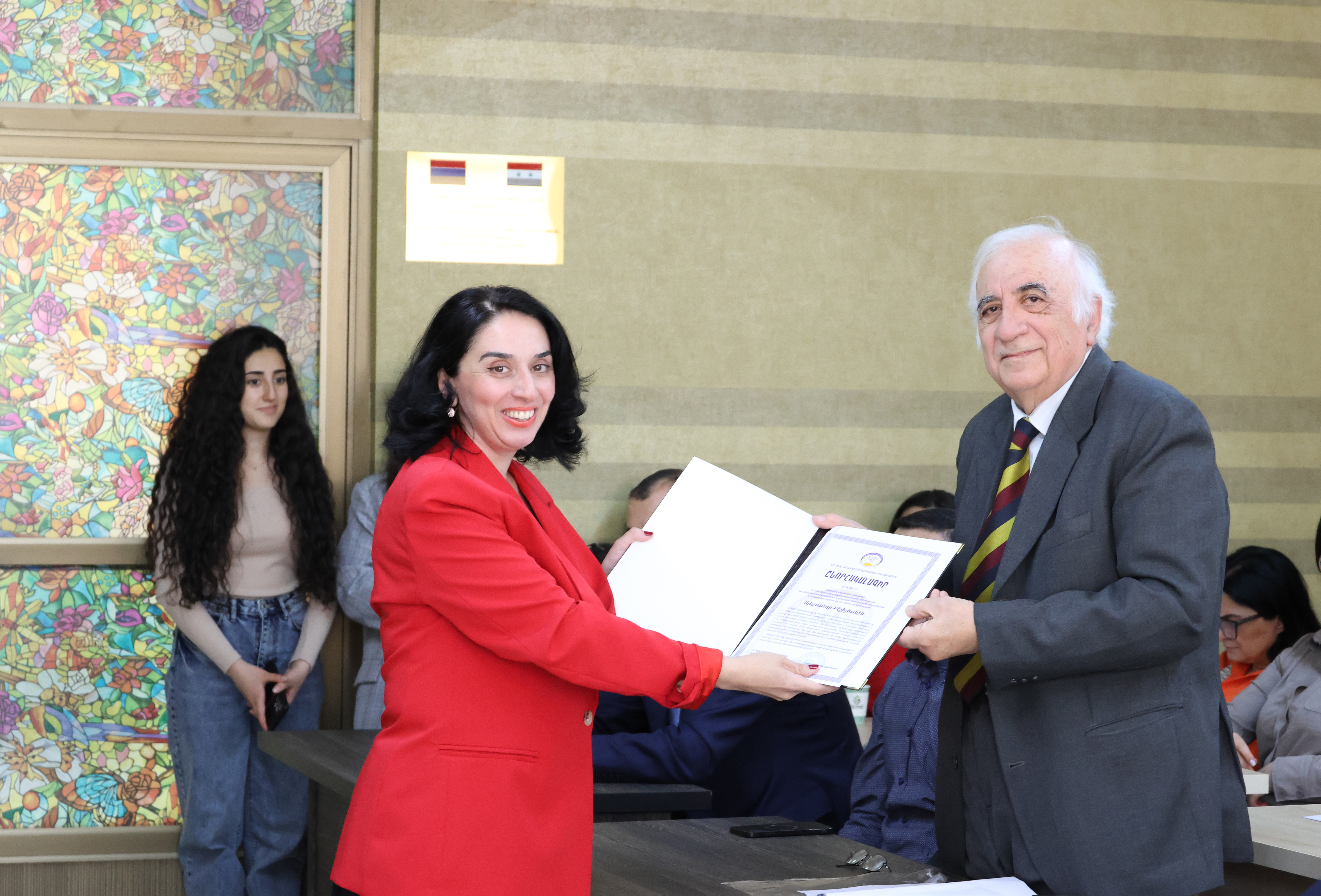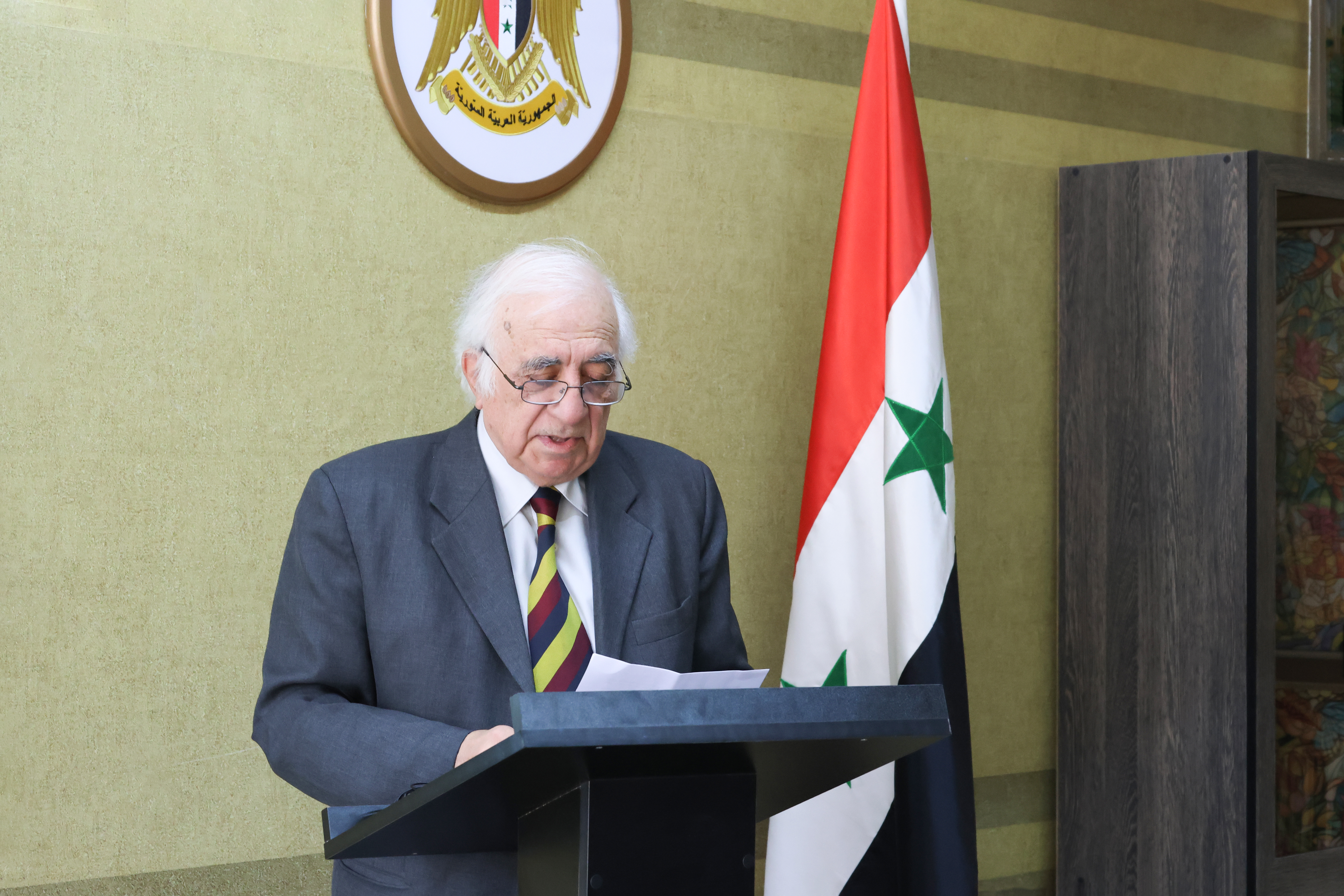May 07, 2024 | 15:02
Science
Education
Society
Armenian studies books in Arabic: presentation of new electronic platform at YSU
The YSU Faculty of Oriental Studies hosted a presentation of the website dedicated to Armenia-Arab countries relations. The website features Armenian-Arabic translations and works by renowned Armenian-Arabic scholars. Specifically, the presentation highlighted translations and authored works by Alexander Keshishyan, a notable Aleppo-Armenian ophthalmologist, translator and public figure.
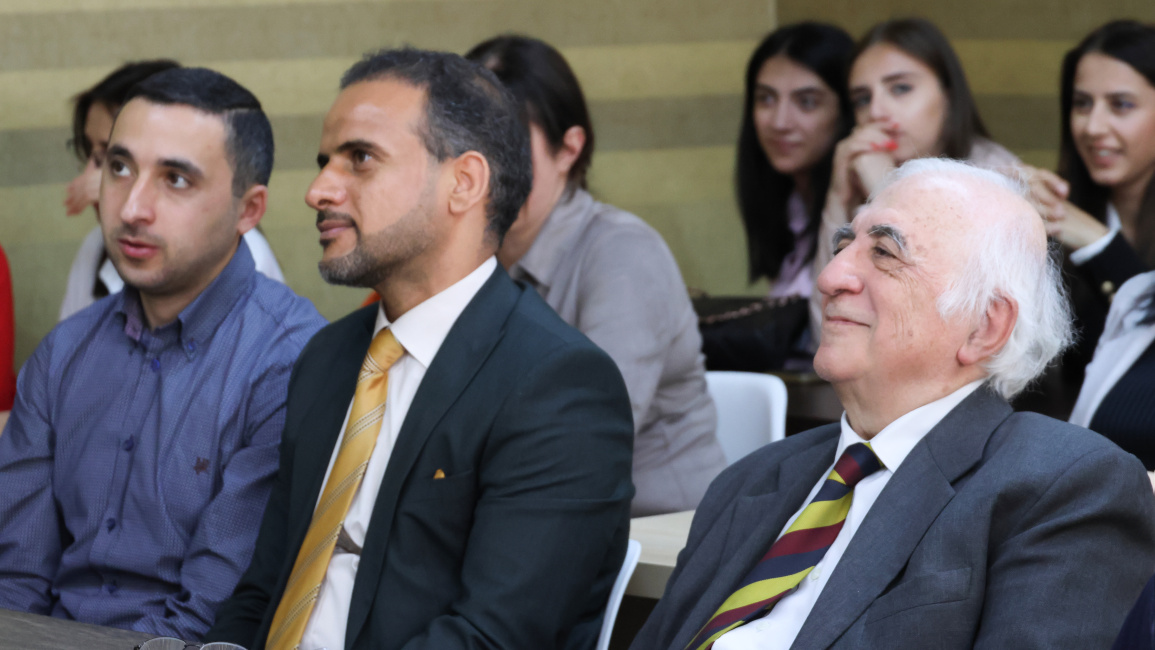
Alexander Keshishyan’s translations are rendered in classical, scientific, high-style Arabic. More than 15 articles authored by A. Keshishyan, focusing on the life of Syria, the preservation of monuments, and the Armenian intelligentsia, are included on the platform.
The creation of the http://www.arm-arab.am/ platform, showcasing Armenian studies in Arabic, was initiated by the Chair of Arabic Studies at the YSU Faculty of Oriental Studies.
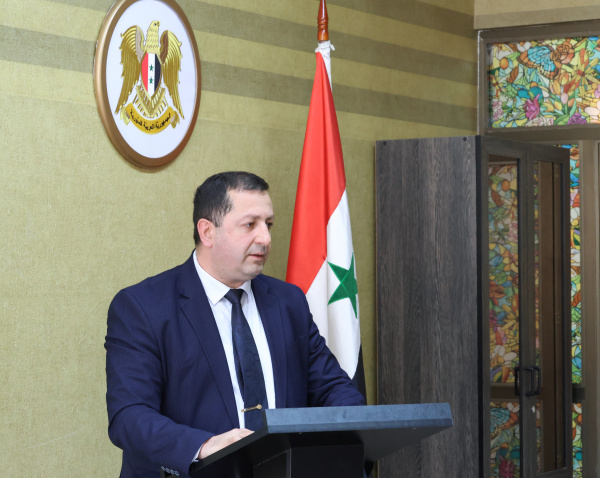
YSU Rector Hovhannes Hovhannisyan, acknowledging the significant contribution of Alexander Keshishyan and the importance of the platform, remarked: "I am very pleased that we have the opportunity to host Alexander Keshishyan at the YSU Faculty of Oriental Studies. The initiative by the Chair of Arabic Studies to develop this website, which houses valuable translations and articles, is commendable. I am confident that the website will be useful not only for researchers but also for our students and professors."
The YSU rector presented Alexander Keshishyan with a certificate of appreciation in recognition of his exceptional contributions and dedicated work in the field of translation.
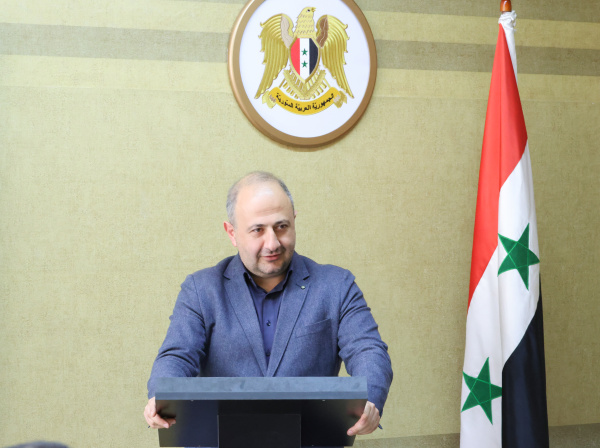
"It is through translators that speakers of different languages understand each other; therefore, this is one of the most rewarding professions. The translator makes the achievements of one nation and the skills of scientific thought accessible to representatives of another nation," said Ruben Melkonyan, Dean of the Faculty of Oriental Studies. He added that the creation of this platform could foster mutual recognition of the achievements and cultures of the two friendly peoples.
Speaking about the platform's creation, Head of the Chair of Arabic Studies Hayk Kocharyan stated: "I had heard about Alexander Keshishyan since I was a student and had read some of his articles. Later, as I became acquainted with him personally and explored his significant scientific contributions, including his articles and translations, I realized the importance of translating the works of Armenian-Arabic scholars. This realization inspired the idea of creating this platform, and we did everything to bring it to fruition."
"I had heard about Alexander Keshishyan since I was a student and had read some of his articles. Later, as I was lucky enough to get to know him personally and explore his significant scientific contributions, including his articles and translations, when he undertook to translate the works of Armenian-Arabic scholars, the idea of creating this platform was born, and we did everything to bring it to fruition."
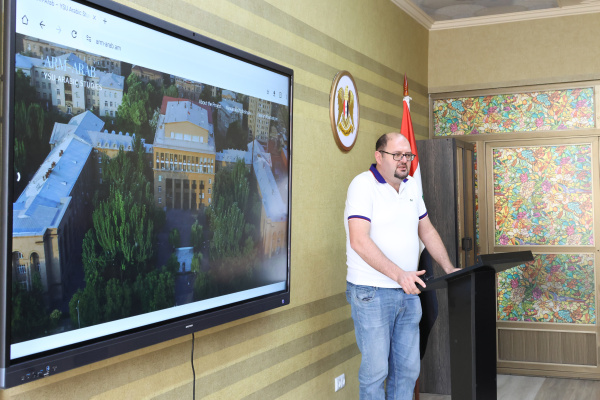
The website also highlights the rich life of the prominent Aleppo Armenian ophthalmologist and translator, presenting the connection between the intellectual and scientific life of Syria and the Armenian context. It summarizes this in one of his books, based on personal correspondence with Alexander Keshishyan and high-ranking figures from the secular and spiritual classes, as well as public and military leaders from the Middle East and Syria, concerning Armenian-Arab relations.
Armenian Ambassador Extraordinary and Plenipotentiary to the Republic of Tunisia and the Kingdom of Morocco, Arshak Poladyan, speaking about Alexander Keshishyan and the art of translation, said:
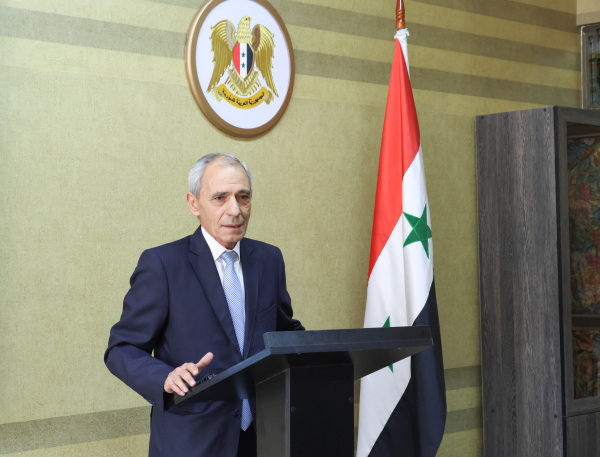
"Alexander Keshishyan has written his name in golden letters among translators. Most of us understand the titanic and colossal nature of translation. It is an art that involves suffering and torment. Mastering a foreign language does not equate to mastering the art of translation. Translating 80 books is a monumental task, the true extent and complexity of which only the translator fully grasps."
Arabic, known for its complex grammatical rules and its fundamental differences from Indo-European languages, demanded years of dedicated effort from Alexander Keshishyan.
"To master this unique language, you need to make a constant effort not only at the university but throughout your life. Universities provide us with professional qualification, but it is not enough to become a sought-after specialist. Being a good translator requires continuous effort and dedication, so one should not only love the profession but fall in love with it, striving for perfection," said Alexander Keshishyan.
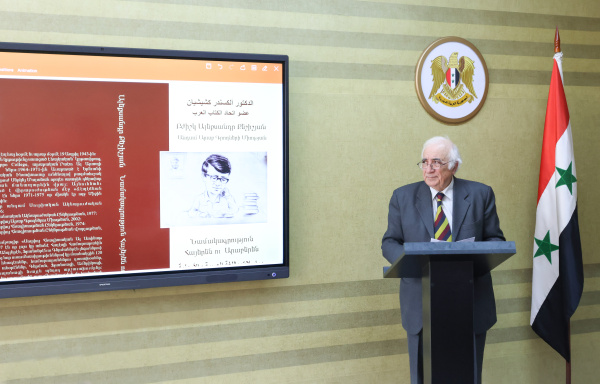
He added that having always lived among Muslim Arabs, he viewed it as his life's main mission to introduce the Arabs to Armenia and the Armenian people. He achieved this by translating and donating many books about Armenia and Armenian-Arab relations to Arab and foreign writers, historians, professors, archaeologists, delegates, high-ranking military officers, ministers, and many other individuals.
Alexander Keshishyan has translated more than 80 books into Arabic from Armenian, English, Russian, and Turkish. These works cover a range of topics related to the Armenian Cause, the Genocide, Armenian history, the church, Armenian-Arab historical relations, Armenian theatre, the press, crafts, and more.
The prominent translator also compiled a three-volume encyclopedia in Arabic, which includes information about numerous Armenian intellectuals and spans a history of about 2,800 years, from Argishti I to figures of the 1990s.
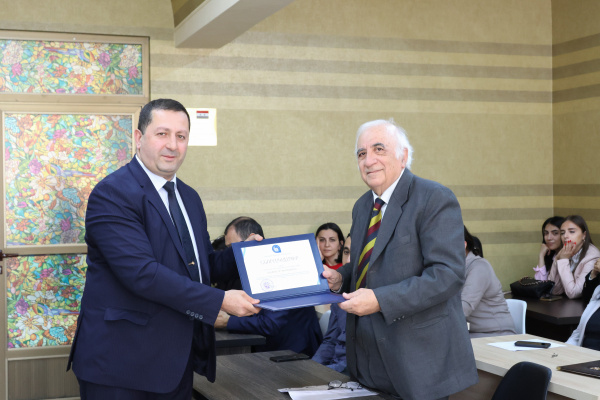
Speaking about the opportunities for teaching foreign languages, A. Keshishyan emphasized, "Exactly 60 years ago, in 1964, while I was studying at Yerevan State Medical University after Mkhitar Heratsi, I believed that teaching foreign languages, aside from Russian, did not exist in our country. However, today, to my surprise, our youth speak and write in various foreign languages very well. They now have a significant mission to present the true image of our nation and civilization to foreigners, including translating the best pages of our literature into Arabic."
A. Keshishyan advised the younger generation to always read, learn, and discover new things.
Professor Davit Hovhannisyan from the Chair of Arabic Studies, Arsen Arakelyan, Head of the Middle East and Africa Department at the RA MFA, and Lilit Harutyunyan, Acting Director of the Institute of Oriental Studies of the NAS RA, gave speeches highlighting the significance of the website.
Representatives of the teaching staff, students, and other interested individuals were present at the meeting.



